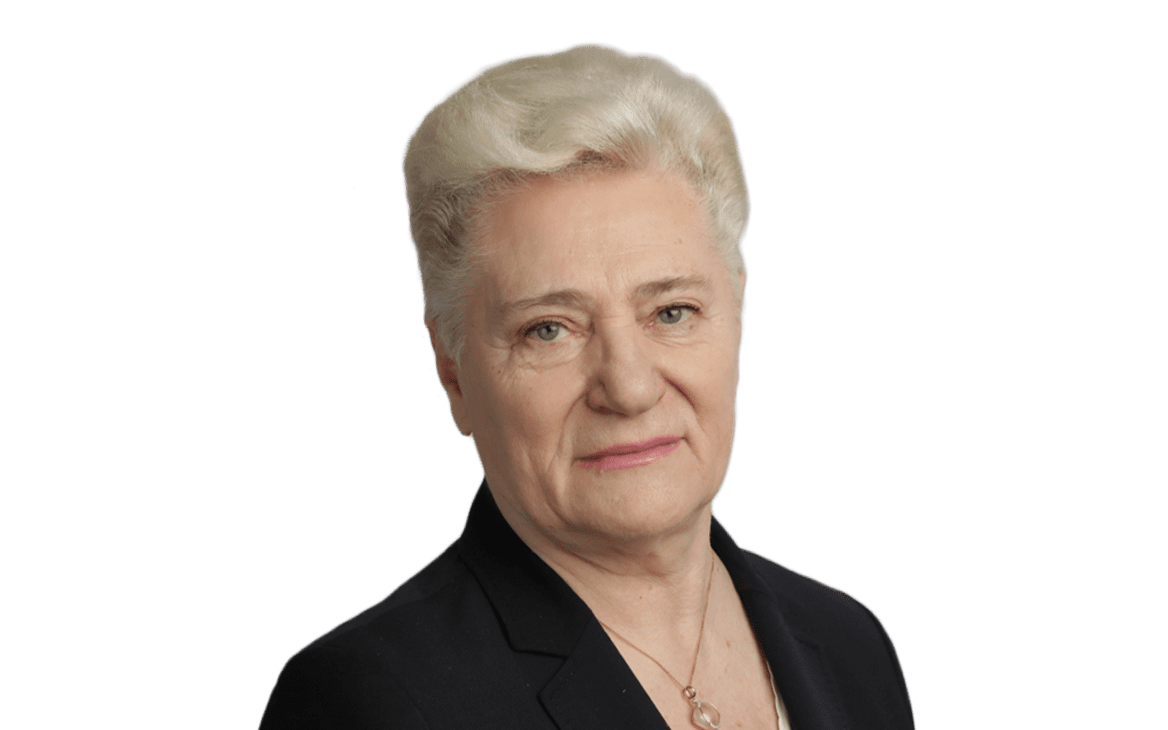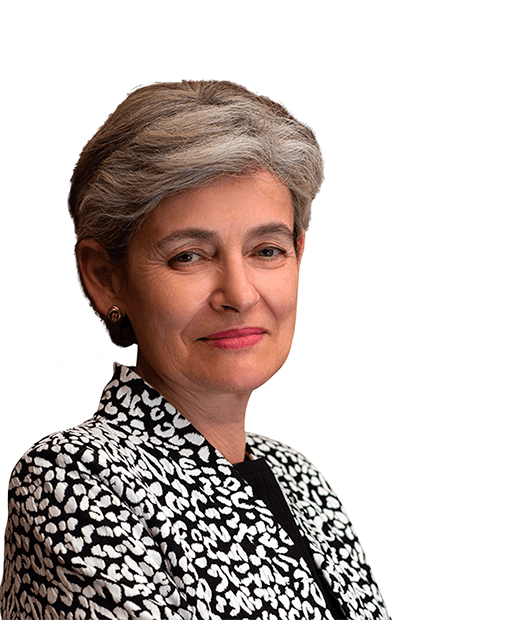Board Committees
The committees of the Board of Directors are advisory and consultative bodies made up of the current Board members with relevant experience and expertise in committees’ specific focus areas.
The committees can also engage external experts and consultants in their work. The primary role of the committees is the preliminary consideration of key issues submitted for review by the Company’s Board of Directors.
The committees are responsible for making sure that issues brought before the Board have been sufficiently reviewed as a way to enable the directors to cast their votes based on full and accurate information. To achieve this, committee members maintain an ongoing dialogue with the management team, the Company’s external auditor and other advisors on the issues that fall within their remit.
The existing committees were established by the Board of Directors on 26 May 2020 without any changes to their composition.
Committee reports
Committee members

Marcus Rhodes, Committee Chairman, independent director

Sven Ombudstvedt, Committee member, independent director

James Rogers, Committee member, independent director

Andrey Sharonov, Committee member, independent director
Activities in 2020
 Marcus Rhodes, chairman of the committee
Marcus Rhodes, chairman of the committee
According to the Regulations on the Company`s Audit Committee, the Audit Committee shall consist of at least three current members of the Board of Directors, and shall be chaired by an independent director. Since 2018, the Committee has consisted of four independent directors. Marcus Rhodes, chairman of the committee, has the necessary experience and expertise in preparation, analysis, assessment and audit of accounting (financial) statements.
The Committee’s remit includes:
- reviewing the IFRS financials for integrity and transparency;
- analysis of financial reporting processes, including regular reviews and recommendations for the Board of Directors;
- recommending the Company’s external auditor to the Board of Directors and maintaining an ongoing dialogue with the external auditor;
- support to the Internal Audit function and analysing the quarterly results of their work;
- discussing and approving the annual internal audit plan;
- ensuring compliance with applicable legislation and relevant standards of business conduct.
During the reporting period, the Audit Committee held five meetings, where the following matters were considered:
- analysis of the Company’s financial performance based on the IFRS consolidated financial statements, including reasons for changes as compared with the previous periods’ results; review of the quarterly results compared with the budget;
- review and discussion of the quarterly IFRS financial statements, along with ensuring the adequacy of disclosures;
- drafting the quarterly press releases on the Company’s performance for investors;
- analysis of the Company`s compliance with Russian and European legislation on protection and use of insider information;
- analysis of the Company’s corporate governance compliance with the Bank of Russia’s Corporate Governance Code and the UK Corporate Governance Code;
- assessing the Company’s internal control and internal audit system;
- further improving the quality of the financial accounting and reporting preparation process;
- developing the of the Company’s Internal Audit Department’s plan of activities for 2021 and monitoring the implementation of the previously approved plan for 2020, as well as assessing the Internal Audit Department’s performance and control over follow-up on its recommendations.
In 2020, the project for integration of the IFRS consolidated management reporting and financial statements preparation procedures using Oracle Hyperion Financial Management was finally completed under the guidance and supervision of the Audit Committee, which allowed for reducing the reporting preparation period by 1.5 months due to introduction of a consolidation system, unification of IFRS and RAS accounting procedures and automatic integration with the accounting systems. Besides, the project introduced a convenient tool for analysing sales efficiency and generating management reports, enabled in-depth analytics across a wide range of financial and operational indicators, and full harmonisation of management reporting and IFRS statements.
In line with best corporate governance practices, the Company has prepared a draft policy for selecting an external auditor to be approved by the Board of Directors, which specifies the grounds and procedure for selection, maximum duration of services, rotation rules for the audit partner, and maximum cost of non-audit services in the total scope of auditor services.
External auditor
A key element of the Audit Committee’s work is ongoing interaction with the external auditor, as well as drafting recommendations for the Board of Directors regarding the approval of the auditor. When selecting an auditor, we evaluate the following factors in addition to the cost of their services:
- Composition of the audit team (in terms of experience and qualifications), which should ensure that the statements are audited within acceptable deadlines and with adequate quality.
- Evaluation of the auditor’s independence based on a variety of factors, including assessment of the scope of non-audit services provided to us by the candidate company during the relevant periods. Each offer from the current auditor for non-audit services requires confirmation by the audit partner to make sure there is no risk to independence and is submitted to the Company’s Audit Committee for consideration and approval. The Committee consents to the contract only if the scope of the non-audit services is not so substantial as to call into question the ability to perform the audit service independently and impartially. The Committee’s assessment of the auditor’s independence is also significantly influenced by the auditor’s internal procedures for controlling the impartiality and professional ethics of the auditor`s staff, including requirements for periodic rotation of the audit partner, training arranged in this area and the use of specialised software to perform the respective audits.
- Balance between the benefits of long-term cooperation with the auditor and the need for a fresh look at the Company’s financial statements and preparation procedures.
- Auditor’s performance over the previous period. Finally, when assessing the possibility of continuing cooperation with the external auditor, the Committee e may form its opinion on the quality of the external auditor’s work during in-person Committee meetings, where the external auditor’s mandatory participants are a manager and the partner, as well as during meetings between the audit team and the Chairman of the Audit Committee held prior to the Committee meetings.
In December 2020, as recommended by the Audit Committee, the Board of Directors approved the appointment of PricewaterhouseCoopers Audit («PwC») as auditor of the Company’s 2021 IFRS financial statements. This recommendation was the result of a formal tender between six audit firms in Russia, including the incumbent KPMG. Based upon extensive presentations and discussions these six firms were reduced to a short list of two, out of which PWC was chosen. Meanwhile, it should be noted that, the Company was extremely satisfied with the high quality of the audit conducted by KPMG over the last 15 years, and is grateful for the constructive cooperation and utmost professionalism that the KPMG team showed during this period.
Committee members

James Rogers, Committee Chairman, independent director

Irina Bokova, Committee member, independent director

Andrey Sharonov, Committee member, independent director
According to the Regulations on the Remuneration and Human Resources Committee, the Committee shall consist of at least three independent directors.
The Committee’s remit includes:
- drafting, regularly reviewing and overseeing the Company’s policy on remuneration of the Board members, members of the Company’s executive bodies and other key executives;
- carrying out a preliminary year-end performance appraisal in respect of the Company’s executive bodies and key executives based on the criteria set forth in the remuneration policy, and making preliminary assessment of their performance against the targets set forth in the long-term incentive programme;
- planning staff appointments so as to ensure, inter alia, continuity of the executive bodies’ work;
- analysing the Board’s composition by way of assessing its members’ professional skills, expertise, independence and involvement in the Board’s work, identifying priority areas for improvements, and assessing qualifications and independence of nominees to the Board of Directors;
- arranging for an annual self-appraisal or third-party appraisal of the Board of Directors’ and its Committees’ efficiency.
Activities in 2020
 James Rogers, chairman of the committee
James Rogers, chairman of the committee
In early 2020, we assessed the efficiency of the Committee and significantly expanded the scope of matters for us to address based on such assessment:
- Succession planning. We additionally discussed succession planning for members of the Board of Directors, members of executive bodies and other key employees, and gave a number of relevant recommendations for N-1 executives.
- Incentive system. we scrutinised all internal regulations of PhosAgro related to the incentive system. The Committee strives to find a balance so as to ensure the number of documents regulating remuneration is both sufficient to provide the details of all existing processes and gives a clear understanding of the remuneration framework to employees. The existing management incentive system, which relies on key performance indicators (KPIs) correlated with strategic targets, made another step forward in 2020, covering as many as 277 people from N to N-3 levels, up 2.6 times year-on-year. A notable part of this growth came from the extended scope of KPIs linked to the Company’s sustainability targets. The Committee confirmed that the existing remuneration framework is efficient and in line with the Company’s requirements.
- Diversity, gender equality and inclusion. 2020 was the first year when the progress in securing diversity, gender equality and inclusion became a part of the Committee’s agenda. We are adamant that our people’s professionalism, consistently strong performance and adherence to corporate values are a prerequisite and the only guarantee of career growth, and we are happy that the Company’s management shares this belief. As early as in April 2021, the Committee’s goals and objectives set forth in the Regulations on the Remuneration and Human Resources Committee will comprise control over securing diversity, gender equality and inclusion.
- Corporate culture. The reporting year also was the first year when the Committee discussed whether the goals, values and strategy of the Company are aligned with its corporate culture, along with its assessment and monitoring. PhosAgro fosters a corporate culture where all employees have the freedom to be themselves and can fully unlock their potential. In 2020, following the Committee’s proposal, questions that help evaluate various aspects and evolution of the corporate culture were included in the annual staff loyalty and satisfaction survey conducted by a third-party expert since 2013.
The above matters must become a permanent item on the Committee’s agenda because they are key to the Company’s long-term success and sustainable development.
We also stayed focused on regular matters:
- assessment of professional skills, independence, engagement and important external nominations or appointments to the Board of Directors;
- best practice guidance and analysis following the appraisal of the Board of Directors’ performance;
- assessment of the performance of the Company’s executive bodies, other key employees, and the Corporate Secretary;
- assessment of social and employee training programmes, including the progress towards a sustainability target approved in the Strategy to 2025 – the number of employee training hours;
- review of the outcomes following the annual staff loyalty and satisfaction survey, including progress towards a sustainability target approved in the Strategy to 2025 – integrated employee loyalty index.
Two times a year, when initially assessing nominations to the Board of Directors and subsequently when finalising its composition, the Committee decides which reasons should disqualify members from serving on it.
While preparing the shareholder information for the annual general meeting, the Committee, among other factors, analysed the effect of the below appointments of independent directors on their ability to duly discharge their responsibilities as the Company’s Board members.
Independent directors’ external appointments:
- Xavier Rolet: Saudi Stock Exchange TADAWUL, Shore Capital Markets, TowerBrook Capital Partners L.P., Seplat Petroleum Development Company Plc., Golden Falcon Special Acquisition Corporation;
- Sven Ombudstvedt: Norske Skog;
- James Rogers: Virtus Total Return Fund Inc, Beeland Interests Inc., AgroGard-Finance, ENPlus Co Ltd, etc.;
- Andrey Sharonov: Moscow School of Management SKOLKOVO, Sovcomflot, Rosseti, En+ Group, Medicina, etc.;
- Natalia Pashkevich: St Petersburg Mining University;
- Irina Bokova: Ban Ki-moon Centre for Global Citizens, International Automobile Federation, FIA Foundation.
The Committee found that in 2020 the above external appointments did not prevent the Board members from duly discharging their responsibilities, while also maximising their contribution to the Company’s growth.
Committee members

Mikhail Rybnikov, Executive Director, Chairman of the Committee

Andrey A. Guryev, Executive Director

Natalia Pashkevich, independent director
The Committee is governed by the Regulation on the Environmental, Health and Safety Committee.
The Committee’s remit includes:
- developing core documents for the integrated health, safety and environment (HSE) management system;
- monitoring the Group companies’ production activities for compliance with the applicable HSE laws;
- assessing environmental, social, technological, and industrial risks associated with the Group companies’ production activities;
- reviewing investigation records on industrial accidents and incidents, environmental laws violation, and breach of climate impact regulations;
- considering proposals on improving working conditions and safety regulations compliance, lowering injury rates, reducing pollutant and greenhouse gas emissions, decreasing waste generation and disposal, improving energy efficiency;
- analysing the progress on programmes and initiatives to introduce resource and energy efficiency solutions and ecoefficient technologies.
Activities in 2020
 Mikhail Rybnikov, chairman of the committee
Mikhail Rybnikov, chairman of the committee
Traditionally, the Committee oversees three workstreams:
- health and safety;
- environmental protection;
- energy efficiency.
The reporting year proved to be successful in terms of reducing industrial injuries, accidents and incidents. For us, the most important results were zero fatal injuries among our employees, including subsidiaries (vs three fatalities in 2019), no breakdowns, fires, traffic accidents with injuries or major damage, and the overall decline in significant incidents by 13%.
The Committee oversaw the implementation of several important health and safety projects, including:
- Risk Management module implementation in the Safety and Instructions (Shift Assignments) management systems;
- lockout/tagout (LOTO) system implementation at the Kirovsk branch of Apatit;
- expanded use of the Public Scrutiny app;
- project to evaluate and improve the safety culture and the OHS management (launched in December).
The Company managed to avoid excessive environmental impacts for the second year in a row, and all our emissions were within limits of the best available technologies. The Committee also oversees a number of environmental management activities, such as the initiatives of the Water Strategy adopted in 2020, and earlier projects for reducing emissions and raising the industrial waste recycling rate.
The Company made strong progress in improving energy efficiency. In 2020, consumption rates for all major energy resources continued to decrease.
We launched the first module of our solar power plant in Balakovo. Although it produces a small amount of energy as yet, the project is very important for the Group. We will meticulously study its effects and then decide on its further replication.
In 2020, we approved the Energy Efficiency Programme covering all our projects and initiatives designed to reduce energy consumption. In 2021, the Committee will monitor the programme implementation.
We also remained focused on regulatory compliance, reviewing, among others, draft laws, which are yet to be considered and approved.
Committee members

Sven Ombudstvedt, Committee Chairman, independent director

Andrey A. Guryev, Committee member, executive director

Andrey G. Guryev, Committee member, non-executive director

Mikhail K. Rybnikov, Committee member, executive director
The Committee’s activities are governed by the Regulations on the Strategy Committee.
The Committee’s remit includes:
- monitoring and updating the Company’s mid-term and long-term strategy, and drafting strategic policies as required;
- evaluating the development of the Company’s subsidiaries, including reviewing their strategies;
- making recommendations regarding the Company’s M&A projects;
- analysis and recommendations regarding potential strategic partnerships.
Activities in 2020
 Sven Ombudstvedt, chairman of the committee
Sven Ombudstvedt, chairman of the committee
In 2020, the Strategy Committee held two meetings, where the following matters were considered:
- the implementation status of the Company’s Development Strategy until 2025;
- key target indicators and sales development models by market group;
- key areas of logistics development;
- future projects (assessment of prospects, preliminary calculation of the new products efficiency).
The Strategy Committee’s activities within the first year of the new strategic cycle were focused on monitoring the progress towards the Goals 2025 approved in 2019. According to a resolution of the Board of Directors, control over compliance of the current activities with the approved strategy is carried out at least twice a year by reviewing the monitoring results, as well as in the course of the Board of Director’ review of the Company’s annual budgets. At both meetings, in March and August 2020, the Committee checked the production volumes, sales in priority markets, and expansion of sales and transport infrastructure against the Strategy. Another innovation for the Committee was the mandatory monitoring of approved ESG indicators.
The 2020 results show that we are well on our way to the Goals 2025:
We expect the production of phosphate rock to exceed the approved target level of 11 mln t in 2025. This will be largely due to commissioning in Q4 2020 of the main shaft of the Kirovsk mine, as well as the ongoing construction and expected commissioning in late 2021 of another major ore and raw material resource development project – the 1st start-up facilities at level 10 of the Kirovsk mine.
Similarly, the 2025 target for our internal phosphate rock processing (8.4 mln t) will be met, with the corresponding increase in mineral fertilizer production, through, among other things, the ambitious projects already underway to develop the Balakovo and Volkhov sites.
We expect the Company to maintain its target sales share in premium markets, although we allow for minor deviations due to changes in market conditions and adherence to the best netback strategy.
We successfully achieved our interim goals 2020 in such indicators as the number of distribution and logistics centers (as many as 29 now), storage capacity for solid and liquid mineral fertilizers (more than 700 kt). We believe that the Goals 2025 will also be successfully achieved in this important area, reflecting our commitment to be closer to the consumer.
The completion in late 2020 of construction, and launch of traffic at the Kryolite railway station (Cherepovets production site) became an important milestone on the way to achieving our key logistics goal of expanding the capacity of our rail infrastructure to over 16 mln t per year. We also comply with our interim targets for other logistics indicators of Strategy 2025: acquisition of our own rolling stock and port infrastructure development.
The adoption of the Climate and Water Strategies in 2020 was an important step toward achieving the ESG targets.
In addition, the Committee focused on monitoring the progress of the investment projects underlying PhosAgro’s ongoing growth in the current strategic cycle, together with development of new projects that will ensure the further dynamic evolution of the Company.
Our strategy cannot be static, we are developing, the external business environment is changing, and we hope that in 2021 we will be able to present amended, even more ambitious strategic goals for the period up to 2025.
Committee members

Sven Ombudstvedt, Committee Chairman, independent director

Xavier Rolet, Committee member, independent director

Andrey A. Guryev, Committee member, executive director
The Committee assists the Board of Directors and other governing bodies of PhosAgro in developing recommendations to identify material risks, work out risk management initiatives and upgrade the risk management framework. The Committee’s activities are governed by the Regulations on the Risk Management Committee.
The Committee’s remit includes:
- assessing the effectiveness of the Company’s risk management framework and providing recommendations for its improvement;
- defining the methodology and identifying the Company’s most material risks to ensure their continuous monitoring and management;
- drafting recommendations for improving the comprehensive risk management framework;
- defining the Company’s risk appetite.
Activities in 2020
 Sven Ombudstvedt, chairman of the committee
Sven Ombudstvedt, chairman of the committee
In 2020, the Committee held three meetings focusing on:
- Results of a reassessment of the Company’s key risks and updating its risk map for 2020. One of the key changes introduced as part of the risk map update was the integration of the cybersecurity risk into it. In addition to the IT infrastructure continuity, the Committee started focusing on key cybersecurity metrics and the status of initiatives to promote computer security. With the effective cybersecurity tools in place, the Company did not record any material incidents in this area in 2020.
- Evaluation of the Company’s risk management and internal control system. Audit completed in 2020 once again showed that the PhosAgro complies with the industry’s leading practices, while in some areas (such as the establishment and convincing performance of a dedicated risk management committee under the Board of Directors) it is far ahead of the peers.
- Results of monitoring of the Company’s key risk management activities (quarterly). The key novelty of the risk monitoring exercise in 2020 was the necessity to address the risk of the new coronavirus infection. The spread of COVID-19 had its toll on practically all operations of the Company, tipping the probability scales of inherent risks to a higher level. As a result, the Company placed a particular emphasis on the management of COVID-related risks and the impact they had on the continuity of business processes. The steps taken by the Company in response to COVID-19 helped prevent the suspension of production operations and avoid disruptions to other material business processes.
- Management of key specific corporate risks. In addition to the cybersecurity and
COVID-19 risks, climate change was a focus of attention for the Committee in 2020. In 2021, the Committee will keep a close watch for the use of a risk-oriented approach in the implementation of PhosAgro’s Climate Strategy.
The risks were also reviewed in the context of the Company strategy implementation, with regular risk monitoring done to assess their impact on the Company’s strategic goals.
Committee members

Irina Bokova, independent director, Chair of the Committee

Andrey Sharonov, independent director

Mikhail Rybnikov, executive director
The Committee’s activities are governed by the Regulations on the Sustainable Development Committee.
The Committee’s remit includes:
- building and analysing PhosAgro’s framework of sustainable development bylaws, controlling their drafting, relevance, effectiveness and quality;
- engaging with key stakeholders and contributing to the development and growth of healthy and sustainable communities in all regions where the Company operates;
- controlling compliance with applicable statutory requirements and internal sustainability objectives;
- organising staff training on best sustainable development practices;
- preparing recommendations to the Board of Directors on determining the Company’s strategic sustainable development objectives;
- reviewing sustainable development reports;
- supervising PhosAgro’s sustainable development disclosure;
- Analysing PhosAgro’s practices and bylaws in terms of compliance with sustainable development rating requirements and managing efforts to maintain and improve the Company’s rating positions.
Activities in 2020
 Irina Bokova, chairman of the committee
Irina Bokova, chairman of the committee
In 2020, the Committee held three meetings and reviewed 11 matters focusing on the following key themes:
- Climate policy. At its first meeting in May 2020, the committee outlined a plan for drafting an appropriate strategy until 2028, determined responsible persons and control points. Already in November, committee members reviewed a draft strategy, including climate scenarios, a list of risks and opportunities associated with each scenario, a low-carbon transition plan, as well as scientifically verified GHG reduction targets.
Importantly, the low-carbon transition plan reflects the rules for interacting with other parties involved in the Company’s value chain, including a supplier engagement concept.
In this way, PhosAgro commits to climate change action across the entire value chain.
For each of the three scopes of GHG emissions, the actual volumes and their evolution, the main sources as well as possible measures to reduce emissions were quantified and analysed.
Following the review and the Committee’s recommendations, the Board of Directors approved the Climate Strategy and endorsed the low-carbon transition plan.
We are pleased that the Company is already taking action under the plan.
It is active in implementing initiatives to reduce direct (Scope 1) GHG emissions. In particular, the Company has been expanding the use of steam associated with sulphuric and nitric acid production to generate electricity and heat. PhosAgro has prepared and is evaluating an action plan aimed at achieving the Scope 1 GHG emission reduction targets.
At the end of 2020, the Company launched a solar power station pilot in Balakovo. The Committee is awaiting the plant’s operational update before deciding to expand the project and replicate it at the Company’s other sites. Moreover, in December 2020 PhosAgro signed a contract to purchase hydro-generated electricity for its mining and processing plant in Kirovsk, the largest production site of the Company. Finally, the Committee approved a new Energy Efficiency Programme, which combines the existing energy efficiency programmes at each of the Company’s production sites and establishes a schedule to be followed by the Company’s management in designing and reviewing these initiatives.
The three projects, as they are implemented, will definitely contribute to the reduction of Scope 2 GHG emissions.
In early 2021, PhosAgro and the Russian Academy of Sciences are set to sign a cooperation agreement aimed at building carbon farms in the Vologda region. Coupled with other initiatives, such as the production of urea with inhibitor launched in 2020 to significantly reduce nitrous oxide emissions in fertilizer application, the project will also contributes to the achievement of Scope 3 GHG emission reduction targets.
We are closely monitoring developments surrounding the expected introduction in 2023 of the carbon border adjustment mechanism and analysing, together with the senior management, associated risks and mitigations as well as opportunities.
- External assessments of the Company’s sustainable development activities. The Committee believes that external assessments, such as ratings, are an effective measure of the Company’s sustainable development activities. We value opinions of specialist ESG agencies, including Sustainalytics, MSCI, CDP and others, as we can gauge the Company’s performance against best global practices and identify areas of improvement and communication with stakeholders. Therefore, at the Committee’s recommendation, an action plan was developed to improve the Company’s key ESG ratings, and the Committee reviewed appropriate reports at each of its three meetings in 2020. We intend to maintain this approach in the future. We are pleased that PhosAgro has made significant progress in this area and look forward to further improvements.
- Setting sustainable development priorities. At the Committee’s initiative, the Company implemented an important project to prioritise sustainable development goals in 2020. In 2019, the Company approved its priority strategic goals and objectives and related activities based on internal discussion and dialogue with stakeholders, and in 2020 the Committee decided that expert justification was required for setting SDG-related priorities, selecting indicators to measure the Company’s environmental impact, designing environmental management approaches and actions to boost the positive impact, while reducing the negative impact.
About 80 sources were reviewed, and 36 types of impact across the value chain were identified. The approach reflects the Company’s multifaceted impact on the achievement of SDGs during the product life cycle and is based on recommendations of the SDG Compass, GRI, the UN Global Compact and the World Business Council for Sustainable Development (WBCSD). As a result, we created a matrix describing the Company’s approaches to achieving SDGs.
- Monitoring environmental and social performance. At each of its meetings, the Committee reviewed the status of activities approved in 2019 in terms of achieving the environmental and social goals until 2025, including waste water discharge levels, Scope 1 GHG emissions, occupational injury and accident rates, hazardous waste treatment, employee satisfaction and loyalty, and training hours. On the Committee’s initiative, in 2020 the Board of Directors approved PhosAgro’s Water Strategy, which consolidated all initiatives related to the three types of impact that the Company’s production sites have on water bodies such as water intake, discharge and consumption. As is the case with the Energy Efficiency Programme, the Water Strategy set the schedule for specific activities to be designed and reviewed by the senior management. The strategy has urged the Company to toughen its targets for discharges into water bodies.